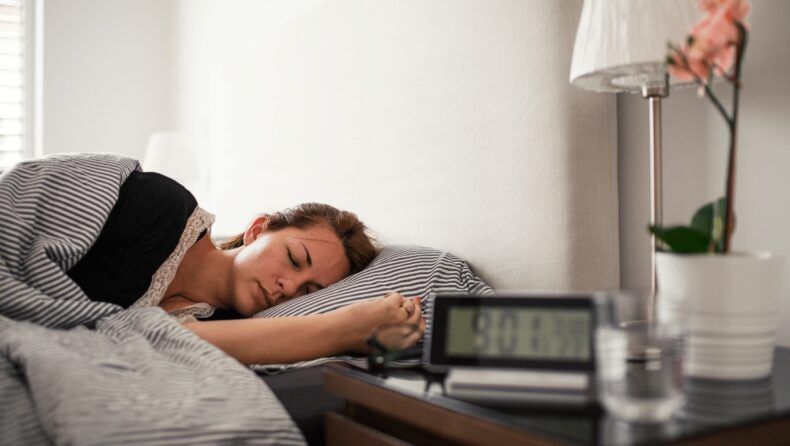Sleep deprivation in general can cause the body to work abnormally. It affects your body’s ability to prepare your body for the next day.

Mr. Suranjit Chatterjee, Senior Consultant, Internal Medicine, Indraprastha Apollo Hospitals, Delhi, says at first glance, this is true to some extent, but not always. What people don’t realize is that sleep is a non-negotiable restorative process, so it also plays an important role in physical and mental health. A busy work schedule, increased stress and an unhealthy lifestyle can lead to irregular sleep patterns. It can lead to lifestyle problems such as low cholesterol and diabetes. There is a preconceived notion that cholesterol and diabetes are usually associated with genetic diseases and can only be caused by unhealthy eating habits and lifestyle. Short-term sleep deprivation can increase the risk of abnormal cholesterol levels and diabetes, according to a published report.
So let’s dig deeper into the impact of sleep on cholesterol and diabetes levels. It helps repair and recharge your body and mind. A hormone is released during sleep, which relaxes the body and lowers blood pressure and heart rate. However, Insomnia and circadian rhythm disturbances can make things go awry. Insomnia in general can cause the body to work abnormally. It affects your body’s ability to prepare your body for the next day.
Insomnia leads to elevated cholesterol and blood pressure. His 2009 study, entitled “Issue of Sleep,” found that men who slept less than six hours had higher levels of LDL cholesterol. Women who got about the same amount of snooze also had lower cholesterol levels. This shows that sleep has different effects on men and women. There is no doubt that obese people often have high cholesterol levels.
Sleep deprivation and diabetes

According to the Centers for Disease Control and Prevention (CDC), irregular patterns can increase insulin resistance in the body. A 2009 Diabetes Care report found that people with persistent insomnia are at increased risk of type 2 diabetes. Similarly, people with diabetes often experience sleep deprivation due to frequent nighttime urination. Lack of sleep has been shown to increase levels of the hunger hormone ghrelin and decrease levels of the satiety hormone leptin.
For this reason, people seek relief from foods that raise blood sugar levels. The American Academy of Sleep Medicine and the Sleep Research Society recommend that adults get at least seven to eight hours of snooze a day. Staying up late means binge-watching and eating, and often consumes junk food high in carbohydrates and sugar. All of which increase the risk of type 2 diabetes and obesity as well.
Hers is what you can do for a good night’s snooze.
Set a schedule

As with any routine, certain patterns will help you maintain a cycle of rest and activity. Going to bed at the same time every day and waking up on time will help you get a good night’s snooze.
Relax before bed
Properly relaxing your mind and body before bed can help you snooze like a baby. To do this, you need to put your phone aside at least half an hour before bedtime. Keep the room dark and quiet. Also, you can always read a good book or listen to soothing music that prepares you for a deep snooze. You should not binge watch any kind of entertainment one hour before bed.
Healthy eating and exercise are key
In addition to regular sleep, eating well and exercising regularly can help you sleep better. Eat a nutritious snack 4 hours before bed. 20-30 minutes of exercise is a must. When you exercise regularly it relaxes your body and give you good snooze.













